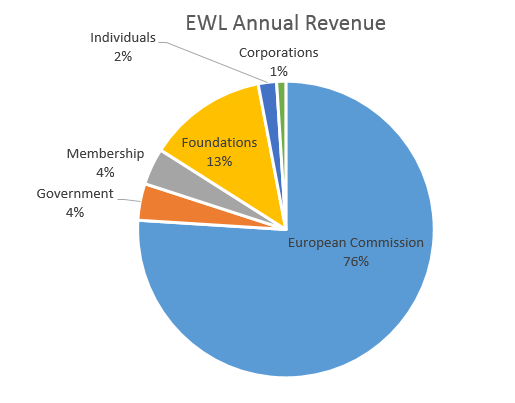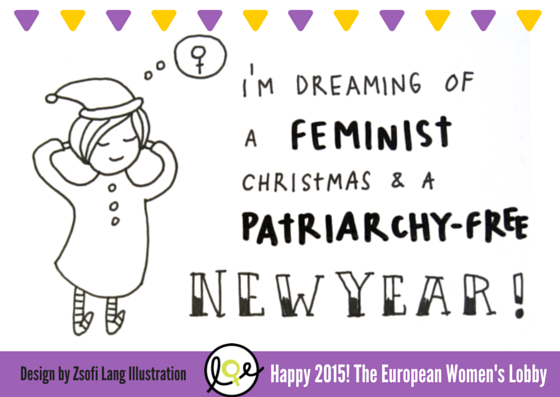[Brussels, April 17, 2014] 5 weeks before the European elections, the European Women’s Lobby explains, week after week, the demands of its Manifesto “Act now for her future, commit to gender equality!”
The fourth demand of the European Women’s Lobby (EWL), the largest umbrella organisation of women’s associations in the European Union, is to ensure equal representation of women and men in decision-making positions at all levels in the EU. Therefore, the European Women’s Lobby calls for parity democracy where the whole of the society is mirrored and the demands and needs of all European citizens, women and men, are taken into consideration when decisions are taken on their behalf.
In five weeks European voters will elect the new European Parliament (EP) and the new European Commission (EC) will be nominated. The European Council will also nominate a European High Representative for Foreign Affairs and Security Policy and the President of the European Council for the second time.
However, women are still seriously underrepresented in political decision-making in all Member States and in European Union institutions. Only 35% of members of European Parliament and just 24% of members of National Parliaments are women. And only three out of 14 European Parliament Vice Presidents are women. Furthermore, Currently 33% of members of the European Commission are women and the President of the Commission (Jose Manuel Barroso) is a man. While the High Representative of the Union for Foreign Affairs and Security (Lady Catherine Ashton) is a woman, the President of the Council (Herman Van Rompuy) is a man too.
Even though the realisation of equality between women and men is an official goal of the EU and enshrined in the EU Treaties and the EU Charter of Fundamental Rights as a fundamental principle of the European Union, unfortunately women are particularly outnumbered by men in political decision-making positions across Europe.
The EU has an obligation to fulfil its commitments. All EU institutions put women in decision-making as a priority on the political agenda such as the European Commission with its Strategy for Equality between Women and Men and the Women’s Charta, the European Council of the European Union reaffirmed its commitment to enhance the representation of women in decision-making and the European Parliament resolution on women in decision-making of March 2012 endorses the use of transitional quotas as a measure to bring more women into decision-making.
It is high time for the EU to walk the talk!
Political parties play a crucial role in enhancing the representation of women in politics. Positive outcomes exist already in several Member States. Eight EU Member States (Belgium, Greece, Spain, Ireland, France, Poland, Portugal and Slovenia) currently have a parity system or legislative quota in place that ranges from 30% to 50% female candidates applicable to the list of candidates for parliamentary elections. Interestingly, the female representation inside these country’s national parliaments increased rapidly since then.
The political families within the European Parliament have a unique chance to change the image of currently, one man presiding the European parliament and only three women being Vice-Presidents out of 14. The political groups must give women voters and elected women the same voice and weight, as to their counterparts. Political parties can do that by nominating women and man as candidates for the European Parliaments presidential elections.
Women are not a minority, but represent the majority of the European society. Therefore, women must be represented in all portfolios of the decision-making positions in the European Parliament. There is no “typical” portfolio for women as all decisions taken on EU level are affecting women, too. Gender can only be mainstreamed when women have a say and are involved at all levels of decision-making.
More recently, the European Commission proposed a directive aiming to improve the representation of women on European company supervisory boards until 2020 with an objective of 40%, currently backed by a positive vote of the European Parliament. Figures show that currently women make up 16.6%, or one in six, of supervisory board members of the largest publicly listed companies in the EU-28 and that this number increases only slowly. Presently it is up to the Council to adopt this measure as the European parliament approved the proposal in December 2013. If adopted, even though not binding for all companies in Europe, it will be a very good first step in the right direction, showing the commitment of the EU and its Member States to gender equality, justice and democracy.
The EWL therefore demands that the EU and all actors and institutions involved are holding up to their commitments with regards to gender equality and women’s rights.



